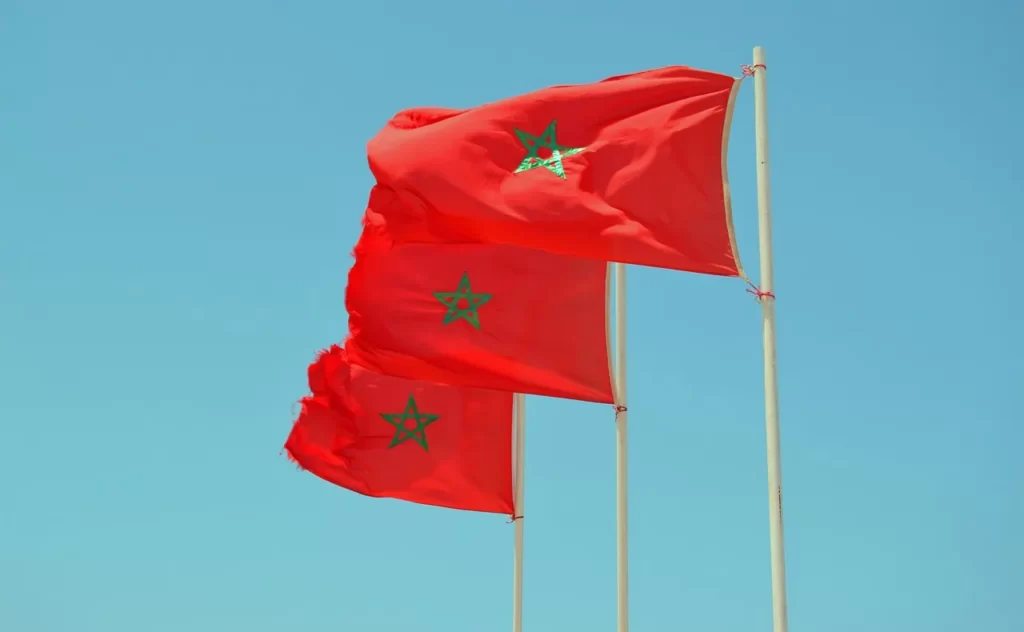 POSTES INTERNATIONALES DU MAROC
POSTES INTERNATIONALES DU MAROC
Moroccan Darija becoming an implicitly feminist language: Leila, Aicha, Joudia
By Khadija Gourri
Naming a newborn in the past, and present in a moroccan society is a festive occasion. Countless individuals have been named after their grandparents, or were given a joint name to please everyone in the family. The scale on which to measure if moroccan people are satisfied, or dissatisfied with their names is almost nonexistent, therefore a simple questionnaire released online can be of aid. 96,9 percent of moroccans are satisfied with their names.
However, people changing their first name is not an unusual event. Based on a huffpost article there are several reasons why a person might take this action, because as mentioned in the article “Our n ames have the power to shape our identity.“
It surely is cool to decide your own name on legal document. As a participant on “ People Reveal Why They Legally Changed Their First Names” article on huffpost. mentioned “ When people say, ‘I love that name,’ I like to answer with, ‘Thanks, I picked it myself!’” — Molly Miner”
Nevertheless, as Art usually does, some songs are able to alter one’s view on a specific name. It could even be the reason why one would change their name. Call me Ishmael – (Moby Dick , Herman melville, ) I mean call me Leila, or better yet Aicha , or maybe best call me Joudia. Actually, call me all of them for if “I come as one and stand as ten thousand.”- Maya Angelou.
Undoubtedly there are countless songs about moroccan female names, but these three “Lila – Oum” and “Aicha – el majdouba by Senhaji” and “Joudia – Soukaina Fahsi” struck me true on a personal level for a number of reasons.
Lila – Oum , is a timeless song.
It dates back to 2015 as part of Oum’s iconic album Zarabi. The nature of Art is that it is always somewhat interconnected, because as Hamed Sinno the lead singer of mashrou leila once said in an interview “Leila is the Juliette of the arab world.” Oum elaborates on this as she gifts a whole lullaby for Lila. The definition of the word lullaby represents the soothing mood, and the embrace of culture, tradition,and love.
Lila is the embodiment of a woman who is ever so perfect that even the night reached for unity.
اللیل من سماه، دلى حبل
ما بیننا بیه تلم الشمل
This not only destroys the stereotypical view inflicted upon women regarding public space in a moroccan society , that women have always have an awaited curfew, it also opens one’s mind to wonder and hope for if even in the midst of darkness love is possible as it is added in the song
لیل في هواه یجیب ولع
On the same note, it is important to admit that the entire song could be a morning mantra but the following verse is the strongest
یالیلة لا تبالي
For if the princess of night and day is busy with whispering history in the ears of the men and women who listen. History about the world, and one’s self for if it is not apparent that the manufacturing of history is a collective work, and everyone’s story means something (although sometimes undermined by the major greedy powers on earth ) Everybody is Lila and should not and does not care. The narration point of view is not omniscient but is limited telling only what has been observed for being true. The narrator ( Oum ) although plays the role of the reminder to Lila’s magnifencene, it is a co-dependent relationship for if it is said
یا للي ولعتي بالي “
حالك یعدل حالي
لیلة لا تمشي
That said, Lila summons the preservation of heritage, the embrace of love, and empowerment.
A icha a an ode to a timeless goddess.
It is agreed that this song is moroccan heritage, and it cannot be specifically pinpointed on a certain timeline. But surely dates way back then the date on the only sound version of it by Senhaji on Dec 31, 2010. https://www.youtube.com/watch?v=B5R1bqL2ZQw
The artist has mastered recreating it, the result is ever so festive, and holy. If music was a religion, its worship place would be the violin. It rules the song, and moves the body in ways that are unexpected, and it almost speaks to say this land is moroccan, its history is in the hands of a woman to which an ode was offred. In no morrocan song is it ever okay to name someone or something a god, because people tend to be rather a lot more reserved condersing the name of god. So to avoid disbelief in god, because belief in islam is monogamous,
and probably to avoid any feelings, or people be offended, a god or a goddess is always
َمجذوب : E l m a j d o u b
رجل مجذوب : رجل من رجال الصوفیة جذبه الحق إلى الحضرة الإلهیة
مجذوبة : And Aicha is a female so she is Aicha El majdouba
وا مالي مالي
وا لیلة مباركة مسعودة
وا حضروا فیها الجیلالة
It starts by stating how beautiful of a night it is to be in the presence of holy spirits. It adds almost a polite complaint, saying and recites its powers.
وا عاري علیك أ عایشة وا عایشة یا المجذوبة
وا عایشة یا مولات الزاج وا لي زارها مایحتاج
It is not apparent what does glass really signify, but as soon as this is all just a subjective interpretation, then it signifies one more time power. Glass reflects oneself, reflects a culture, and tradition. So as long as that is held on to, one wouldn’t need nothing. And a song that celebrates a woman’s power, and puts it on a pedestal, almost godlike is the part of heritage that should be kept sacred forever.
وا حسك فجبال ینادي
وا كیف جاي كیف لغادي
وا الذبیحة عندك مذبوحة
وا بیبان لخیر راه مفتوحة
Joudia – Soukaina Fahsi
جودي : The name of the song has double meaning, Joudia as the name of the woman and joudi as the verb that means to gracefully give something. The entire song is a confession of love, and passion as the following lines show:
آجودیة ویا لالة
جودیة هایلي
انت لحبیبة دیالي
It is made for the artist’s mother as a recognition of the high role the latter plays in the artist’s life, and it symboles many things, but my favorites are the following lines :
عنك خدنا الزین
الباطن منو
ولي ظهر
It celebrates the beauty of one’s soul, as well as their appearance highlighting that they are equally important, and the ultimate source for that is once more, a woman.
Songs that are named after women, and written for women in a patriarchal moroccan society are ever so powerful for if they alter the traditional view many hold about women, and it is ever so beautiful to change tradition using tradition.






